- Home
- Nora Roberts
The Villa Page 3
The Villa Read online
Page 3
"And when we get back tonight, I'll show you just what you can expect from me when we're married. When we get back, Tony…" She leaned in, bit teasingly at his bottom lip. "You can do anything you want."
"Let's just skip the party."
She laughed, slipped away from his hands. "It's important. And it'll give you time to think of just what you want to do to me. Get my sable for me, won't you, darling?"
She felt like sable tonight, Rene thought as Tony went to comply.
She felt rich tonight.
Chapter Two
Contents - Prev | Next
The valley, and the hills that rose from it, wore a thin coat of snow. Vines, arrogant and often temperamental soldiers, climbed up the slopes, their naked branches spearing through the quiet mist that turned the circling mountains to soft shadows.
Under the pearly dawn, the vineyard shivered and slept.
This peaceful scene had helped spawn a fortune, a fortune that would be gambled again, season after season. With nature both partner and foe.
To Sophia, the making of wine was an art, a business, a science. But it was also the biggest game in town.
From a window of her grandmother's villa, she studied the playing field. It was pruning season, and she imagined while she'd been traveling vines had already been accessed, considered, and those first stages toward next year's harvest begun. She was glad she'd been called back so that she could see that part of it for herself.
When she was away, the business of the wine occupied all her energies. She rarely thought of the vineyard when she wore her corporate hat. And whenever she came back, like this, she thought of little else.
Still, she couldn't stay long. She had duties in San Francisco. A new advertising campaign to be polished. The Giambelli centennial was just getting off the ground. And with the success of the auction in New York, the next stages would require her attention.
An old wine for a new millennium, she thought. Villa Giambelli: The next century of excellence begins.
But they needed something fresh, something savvy for the younger market. Those who bought their wine on the run—a quick impulse grab to take to a party.
Well, she'd think of it. It was her job to think of it.
And putting her mind to it would keep it off her father and the scheming Rene.
None of her business, Sophia reminded herself. None of her business at all if her father wanted to hook himself up with a former underwear model with a heart the size and texture of a raisin. He'd made a fool of himself before, and no doubt would again.
She wished she could hate him for it, for his pathetic weakness of character, and his benign neglect of his daughter. But the steady, abiding love just wouldn't shift aside. Which made her, she supposed, as foolish as her mother.
He didn't care for either of them as much as he did the cut of his suit. And didn't give them a thought two minutes after they were out of his sight. He was a bastard. Utterly selfish, sporadically affectionate and always careless.
And that, she supposed, was part of his charm.
She wished she hadn't stopped by the night before, wished she wasn't compelled to keep that connection between them no matter what he did or didn't do.
Better, she thought, to keep on the move as she had for the past several years. Traveling, working, filling her time and her life with professional and social obligations.
Two days, she decided. She would give her grandmother two days, spend time with her family, spend time in the vineyard and the winery. Then it was back to work with a vengeance.
The new campaign would be the best in the industry. She would make sure of it.
As she scanned the hills, she saw two figures walking through the mist. The tall gangly man with an old brown cap on his head. The ramrod-straight woman in mannish boots and trousers with hair as white as the snow they trod. A Border collie plodded along between them. Her grandparents, taking their morning walk with the aging and endlessly faithful Sally.
The sight of them lifted her mood. Whatever changed in her life, whatever adjustments had been made, this was a constant. La Signora and Eli MacMillan. And the vines.
She dashed from the window to grab her coat and join them.
At sixty-seven, Tereza Giambelli was sculpted, razor-sharp, body and mind. She had learned the art of the vine at her grandfather's knee. Had traveled with her father to California when she'd been only three to turn the land of the ripe valley to wine. She'd become bilingual and had traveled back and forth between California and Italy the way other young girls had traveled to the playground.
She'd learned to love the mountains, the thatch of forest, the rhythm of American voices.
It was not home, would never be home as the castello was. But she had made her place here, and was content with it.
She had married a man who had met with her family's approval, and had learned to love him as well. With him she had made a daughter, and to her lasting grief, birthed two stillborn sons.
She had buried her husband when she was only thirty. And had never taken his name or given it to her only child. She was Giambelli, and that heritage, that responsibility was more vital and more sacred even than marriage.
She had a brother she loved who was a priest and tended his flock in Venice. She had another who had died a soldier before he had really lived. She revered his memory, though it was dim.
_
And she had a sister she considered foolish at best, who had brought a daughter more foolish yet into the world.
It had been up to her to continue the family line, the family art. She had done so.
Her marriage to Eli MacMillan had been carefully considered, scrupulously planned. She had considered it a merger, as his vineyards were prime and nestled below hers in the valley. He was a good man and, more important in her calculations, a good vintner.
He had cared for her, but other men had cared for her. She enjoyed his company, but she had enjoyed the company of others. In the end, she'd thought of him as the Merlot, the softer mellowing juice blended to her stronger, and admittedly harsher, Cabernet Sauvignon.
The right combination could produce excellent results.
Her acceptance of his marriage proposal had been contingent on complex and detailed business arrangements. The arrangements had benefited both their companies, and had contented her.
But Tereza, who was rarely surprised, had been so, to find comfort, pleasure and simple satisfaction in a marriage now approaching its twentieth year.
He was a fine-looking man still. Tereza didn't discount such matters, as they spoke of genes. What made up a man was as important, to her mind, as what that man made of himself.
Though he was ten years her senior, she saw no sign of him bowing to age. He still rose at dawn every day, and would walk with her, regardless of the weather, every morning.
She trusted him as she had no man since her grandfather, and cared for him more than she had any man not of her blood.
He knew all of her plans, and most of her secrets.
"Sophia arrived late last night."
"Ah." Eli laid a hand on her shoulder as they walked between the rows. It was a simple gesture, and habitual for him. It had taken Tereza some time to grow used to this casual touching from a man, from a husband. A longer time still to come to depend on it. "Did you think she wouldn't come?"
"I knew she would come." Tereza was too used to being obeyed to doubt it. "If she'd come straight from New York, she would have been here sooner."
"So, she had a date. Or did some shopping."
Tereza's eyes narrowed. They were nearly black and still sharp in distance vision. Her voice was sharp as well, and carried the exotic music of her homeland. "Or stopped off to see her father."
"Or stopped off to see her father," Eli agreed in his slow, comfortable way. "Loyalty's a trait you've always admired, Tereza."
"When it's earned." There were times, much as she cared for him, when Eli's unending tolerance infuriated h
er. "Anthony Avano has earned nothing but disgust."
"A pitiful man, a poor husband and a mediocre father." Which made him, Eli mused, very like his own son. "Yet he continues to work for you."
"I let him into Giambelli too intimately in those early years." She'd trusted him, she thought, had seen potential in him. Had been deceived by him. That she would never forgive. "Still, he knows how to sell. I use whatever tools perform their task. Firing him long ago would have been a personal satisfaction and professionally unwise. What's best for Giambelli is what's best. But I don't like to see my granddaughter cater to the man. Uh."
She tossed aside thoughts of her son-in-law with an impatient wave of the hand. "We'll see how he takes what I have to say today. Sophia will have told him I called her home. So, he'll come."
Eli stopped, turned. "And that's exactly as you wanted it. You knew she'd tell him."
Her dark eyes glinted, and her smile was cool. "And if I did?"
"You're a difficult woman, Tereza."
"Yes. Thank you."
He laughed and, shaking his head, began to walk with her again. "Your announcements today are going to cause trouble. Resentment."
"I should hope so." She stopped to examine some of the younger vines supported by trellis wires. Cane-pruning would be required here, she thought. Only the strongest of them would be permitted to grow and to be trained.
"Complacency becomes rot, Eli. Tradition must be respected, and change explored."
She scanned the land. The mist was raw and the air damp. The sun would not burn through it that day, she was certain.
Winters, she thought, grew longer with every year.
"Some of these vines I planted with my own hands," she continued. "Vines my father brought from Italy. As they grew old, the new was made from them. The new must always have room to sink their roots, Eli, and the mature are entitled to their respect. What I built here, what we've built in our time together, is ours. I'll do as I think best with it, and for it."
"You always have. In this case, as in most, I agree with you. It doesn't mean we'll have an easy season ahead of us."
"But a vintage one," she said. "This year…" She reached over to turn a naked vine in her fingers. "A fine and rare vintage. I know it."
She turned, watched her granddaughter run up the slope toward them. "She's so beautiful, Eli."
"Yes. And strong."
"She'll need to be," Tereza said and stepped forward to catch Sophia's hands in hers. "Buon giorno, cara. Come va?"
"Bene. Bene." They kissed cheeks, hands tightly linked. "Nonna." Sophia eased back, studied her grandmother's face. It was a handsome face, not soft and pretty as the girl on the label made so long ago, but strong, nearly fierce. Carved, Sophia always thought, as much by ambition as time. "You look wonderful. And you."
She shifted to throw her arms around Eli. Here, it was all very simple. He was Eli, just Eli, the only grandfather she'd ever known. Safe, loving and uncomplicated.
He gave her a little lift with the hug, so her toes just left the ground. It made her laugh, and cling. "I saw you from my window." She stepped back as her feet hit the ground again, then lowered to pat and stroke the patient Sally. "You're a painting, the three of you. The Vineyard, I'd call it," she continued, straightening to button Eli's jacket at his throat against the chill. "What a morning."
She closed her eyes, tipping her head back and breathing deep. She could smell the damp, her grandmother's soap and the tobacco Eli must have secreted in one of his pockets.
"Your trip was successful?" Tereza asked.
"I have memos. My memos have memos," she added, laughing again as she hooked her arms through theirs so they could walk together. "You'll be pleased, Nonna. And I have some brilliant ideas, she says with due modesty, on the promotion campaign."
Eli glanced over, and when he saw Tereza wasn't going to comment, patted Sophia's hand. The trouble, he thought, would start very quickly now.
"The pruning's begun." Sophia noted the fresh cuts on the vines. "At MacMillan as well?"
"Yes. It's time."
"It seems a long way till harvest. Nonna, will you tell me why you've brought us all here? You know I love to see you, and Eli, and Mama. But preparing the vines isn't the only work that's required for Giambelli."
"We'll talk later. Now we'll have breakfast before those monsters of Donato's are up and driving us all insane."
"Nonna."
"Later," Tereza said again. "We're not all yet here."
Villa Giambelli sat on a knoll above the center of the valley and beside a forest that had been left to grow wild. Its stones showed gold and red and umber when the light struck them, and its windows were many. The winery had been built to replicate the one in Italy, and though it had been expanded, and ruthlessly modernized, it was still in operation.
A large, attractively outfitted tasting room, where patrons could, by appointment, sample the products along with breads and cheeses, had been added to it. Wine clubs were welcomed to lavish affairs four times a year, and tours could be arranged through the offices there or in San Francisco.
Wine, bought from the winery itself on those occasions, could be shipped anywhere in the world.
The caves, with their cool, damp air, that pocketed the hills were used for storage and the aging of the wine. The fields that had built Villa Giambelli and its facilities stretched for more than a hundred acres, and during harvest the very air smelled of the promise of wine.
The central courtyard of the villa was tiled in Chianti red and boasted a fountain where a grinning Bacchus forever hoisted his goblet. When the winter cold had passed, dozens and dozens of pots would be set out so that the space was alive with flower and scent.
It boasted twelve bedrooms and fifteen baths, a solarium, a ballroom and a formal dining room that could accommodate sixty. There were rooms dedicated to music, and rooms celebrating books. Rooms for work and for contemplation. Within its walls was a collection of Italian and American art and antiques that was second to none.
There were both indoor and outdoor pools, and a twenty-car garage. Its gardens were a fantasy.
Balconies and terraces laced the stone, and a series of steps afforded both family and guests private entrances and exits.
Despite its size, its scope and its priceless treasures, it was very much a home.
The first time Tyler had seen it, he'd thought of it as a castle, full of enormous rooms and complicated passages. At the moment, he thought of it as a prison, where he was sentenced to spend entirely too much time with entirely too many people.
He wanted to be outside in the raw air tending his vines and drinking strong coffee out of a thermos. Instead he was trapped in the family parlor sipping an excellent Chardonnay. A fire was snapping gaily in the hearth, and elegant little hors d'oeuvres were set around the room on platters of colorful Italian pottery.
He couldn't understand why people wasted the time and effort on bits of finger food when slapping a sandwich together was so much quicker and easier.
Why was it food had to be such a damn event? And he imagined if he uttered such heresy in a household of Italians, he'd be lynched on the spot.
He'd been forced to change out of his work clothes into slacks and a sweater—his idea of formal wear. At least he hadn't strapped himself into a suit like… what was the guy's name? Don. Don from Venice with the wife who wore too much makeup, too much jewelry and always seemed to have a shrieking baby attached to some part of her body.
She talked too much, and no one, particularly her husband, appeared to pay any attention.
Francesca Giambelli Russo said little to nothing. Such a contrast to La Signora, Ty mused. You'd never make them as sisters. She was thin and drifty, an insubstantial little woman who stayed glued in her chair and looked as though she'd jump out of her skin if anyone addressed her directly.
Ty was always careful not to do so.
The little boy, if you could call a demon from hell a boy, was spra
wled on the rug smashing two trucks together. Eli's Border collie, Sally, was hiding under Sophia's legs.

 A Little Magic
A Little Magic Vision in White
Vision in White True Betrayals
True Betrayals The Next Always
The Next Always A Man for Amanda
A Man for Amanda Born in Fire
Born in Fire Tribute
Tribute Night Moves
Night Moves Dance Upon the Air
Dance Upon the Air The Name of the Game
The Name of the Game Jewels of the Sun
Jewels of the Sun River's End
River's End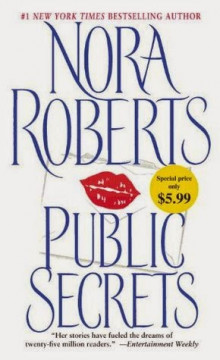 Public Secrets
Public Secrets Homeport
Homeport Private Scandals
Private Scandals The Witness
The Witness Blithe Images
Blithe Images Hidden Riches
Hidden Riches Key of Light
Key of Light Divine Evil
Divine Evil High Noon
High Noon Blue Dahlia
Blue Dahlia Sea Swept
Sea Swept This Magic Moment
This Magic Moment Year One
Year One A Little Fate
A Little Fate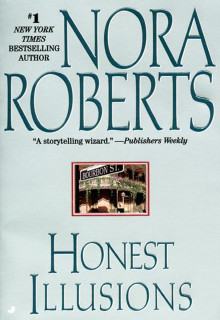 Honest Illusions
Honest Illusions The Reef
The Reef Shelter in Place
Shelter in Place The Hollow
The Hollow Holding the Dream
Holding the Dream The Pagan Stone
The Pagan Stone Savour the Moment
Savour the Moment The Perfect Hope
The Perfect Hope Island of Glass
Island of Glass Happy Ever After
Happy Ever After Bed of Roses
Bed of Roses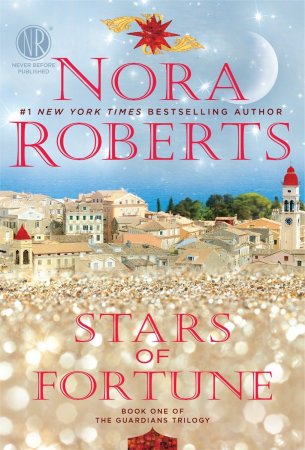 Stars of Fortune
Stars of Fortune Dark Witch
Dark Witch The Return of Rafe MacKade
The Return of Rafe MacKade Chesapeake Blue
Chesapeake Blue The Perfect Neighbor
The Perfect Neighbor The Collector
The Collector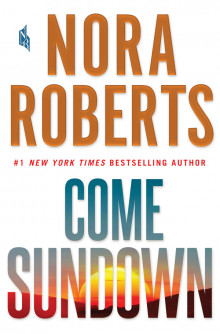 Come Sundown
Come Sundown Rebellion
Rebellion Affaire Royale
Affaire Royale Daring to Dream
Daring to Dream Bay of Sighs
Bay of Sighs Blood Magick
Blood Magick Angels Fall
Angels Fall Captivated
Captivated The Last Boyfriend
The Last Boyfriend Irish Thoroughbred
Irish Thoroughbred Inner Harbor
Inner Harbor The Right Path
The Right Path Night Shadow
Night Shadow The Heart of Devin MacKade
The Heart of Devin MacKade Shadow Spell
Shadow Spell The Playboy Prince
The Playboy Prince The Fall of Shane MacKade
The Fall of Shane MacKade Rising Tides
Rising Tides Command Performance
Command Performance Hidden Star
Hidden Star Cordina's Crown Jewel
Cordina's Crown Jewel The MacGregor Brides
The MacGregor Brides The Pride of Jared MacKade
The Pride of Jared MacKade Born in Ice
Born in Ice Whiskey Beach
Whiskey Beach The Last Honest Woman
The Last Honest Woman Night Shield
Night Shield Born in Shame
Born in Shame Secret Star
Secret Star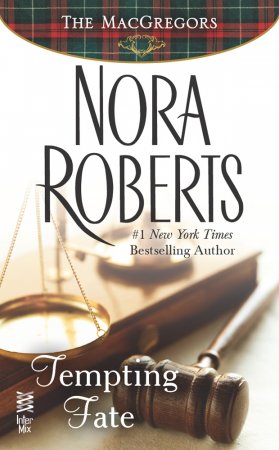 Tempting Fate
Tempting Fate Nightshade
Nightshade The Obsession
The Obsession Night Shift
Night Shift Playing The Odds
Playing The Odds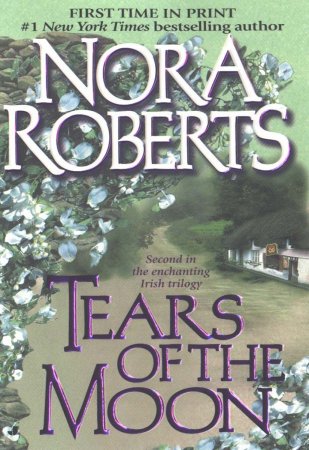 Tears of the Moon
Tears of the Moon One Man's Art
One Man's Art The MacGregor Groom
The MacGregor Groom Irish Rebel
Irish Rebel Morrigan's Cross
Morrigan's Cross In From The Cold
In From The Cold Night Smoke
Night Smoke Finding the Dream
Finding the Dream Red Lily
Red Lily The Liar
The Liar Montana Sky
Montana Sky Heart of the Sea
Heart of the Sea All The Possibilities
All The Possibilities Opposites Attract
Opposites Attract Captive Star
Captive Star The Winning Hand
The Winning Hand Key of Valor
Key of Valor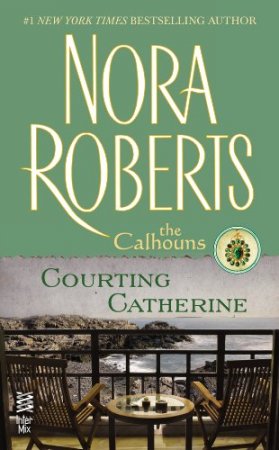 Courting Catherine
Courting Catherine Heaven and Earth
Heaven and Earth Face the Fire
Face the Fire Untamed
Untamed Skin Deep
Skin Deep Enchanted
Enchanted Song of the West
Song of the West Suzanna's Surrender
Suzanna's Surrender Entranced
Entranced Dance of the Gods
Dance of the Gods Key of Knowledge
Key of Knowledge Charmed
Charmed For Now, Forever
For Now, Forever Blood Brothers
Blood Brothers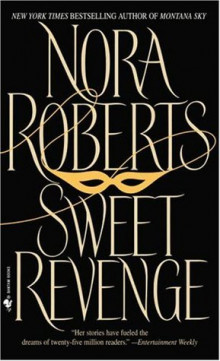 Sweet Revenge
Sweet Revenge Three Fates
Three Fates Mind Over Matter
Mind Over Matter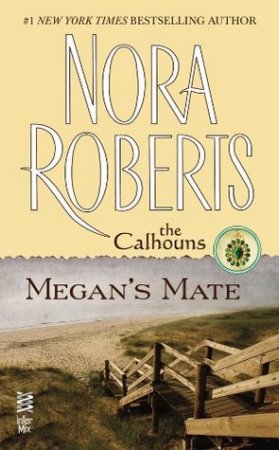 Megan's Mate
Megan's Mate Valley of Silence
Valley of Silence Without A Trace
Without A Trace The Law is a Lady
The Law is a Lady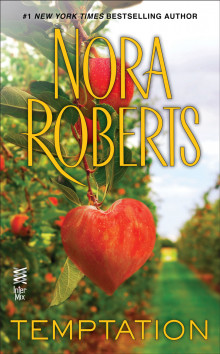 Temptation
Temptation Dance to the Piper
Dance to the Piper Blue Smoke
Blue Smoke Black Hills
Black Hills The Heart's Victory
The Heart's Victory Sullivan's Woman
Sullivan's Woman Genuine Lies
Genuine Lies For the Love of Lilah
For the Love of Lilah Gabriel's Angel
Gabriel's Angel Irish Rose
Irish Rose Hot Ice
Hot Ice Dual Image
Dual Image Lawless
Lawless Catch My Heart
Catch My Heart Birthright
Birthright First Impressions
First Impressions Chasing Fire
Chasing Fire Carnal Innocence
Carnal Innocence Best Laid Plans
Best Laid Plans The Villa
The Villa Northern Lights
Northern Lights Local Hero
Local Hero Island of Flowers
Island of Flowers The Welcoming
The Welcoming All I Want for Christmas
All I Want for Christmas Black Rose
Black Rose Hot Rocks
Hot Rocks Midnight Bayou
Midnight Bayou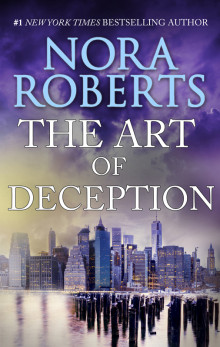 The Art of Deception
The Art of Deception From This Day
From This Day Less of a Stranger
Less of a Stranger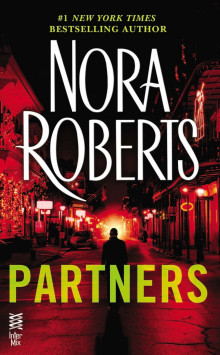 Partners
Partners Storm Warning
Storm Warning Once More With Feeling
Once More With Feeling Her Mother's Keeper
Her Mother's Keeper Sacred Sins
Sacred Sins Rules of the Game
Rules of the Game Sanctuary
Sanctuary Unfinished Business
Unfinished Business Cordina's Royal Family Collection
Cordina's Royal Family Collection Dangerous Embrace
Dangerous Embrace One Summer
One Summer The Best Mistake
The Best Mistake Boundary Lines
Boundary Lines Under Currents
Under Currents The Stanislaski Series Collection, Volume 1
The Stanislaski Series Collection, Volume 1 The Rise of Magicks
The Rise of Magicks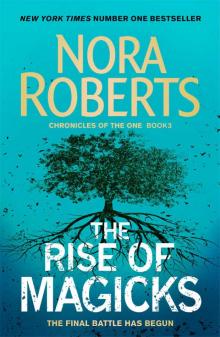 The Rise of Magicks (Chronicles of The One)
The Rise of Magicks (Chronicles of The One) The Awakening: The Dragon Heart Legacy Book 1
The Awakening: The Dragon Heart Legacy Book 1 Dance of Dreams
Dance of Dreams Skin Deep: The O'Hurleys
Skin Deep: The O'Hurleys The Quinn Legacy: Inner Harbor ; Chesapeake Blue
The Quinn Legacy: Inner Harbor ; Chesapeake Blue![[Chronicles of the One 03.0] The Rise of Magicks Read online](http://i1.bookreadfree.com/11/chronicles_of_the_one_03_0_the_rise_of_magicks_preview.jpg) [Chronicles of the One 03.0] The Rise of Magicks
[Chronicles of the One 03.0] The Rise of Magicks Times Change
Times Change Dance to the Piper: The O'Hurleys
Dance to the Piper: The O'Hurleys Christmas In the Snow: Taming Natasha / Considering Kate
Christmas In the Snow: Taming Natasha / Considering Kate Waiting for Nick
Waiting for Nick Summer Desserts
Summer Desserts Dream 2 - Holding the Dream
Dream 2 - Holding the Dream The Novels of Nora Roberts, Volume 2
The Novels of Nora Roberts, Volume 2 In the Garden Trilogy
In the Garden Trilogy Eight Classic Nora Roberts Romantic Suspense Novels
Eight Classic Nora Roberts Romantic Suspense Novels Best Laid Plans jh-2
Best Laid Plans jh-2 From the Heart
From the Heart Holiday Wishes
Holiday Wishes Dream 1 - Daring to Dream
Dream 1 - Daring to Dream Second Nature
Second Nature Summer Pleasures
Summer Pleasures Once Upon a Castle
Once Upon a Castle Stars of Mithra Box Set: Captive StarHidden StarSecret Star
Stars of Mithra Box Set: Captive StarHidden StarSecret Star Impulse
Impulse The Irish Trilogy by Nora Roberts
The Irish Trilogy by Nora Roberts The Pride Of Jared Mackade tmb-2
The Pride Of Jared Mackade tmb-2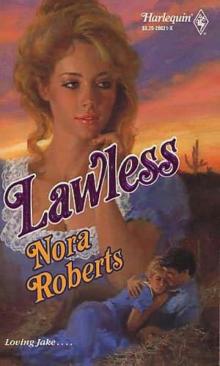 Lawless jh-3
Lawless jh-3 Taming Natasha
Taming Natasha Endless Summer
Endless Summer Bride Quartet Collection
Bride Quartet Collection Happy Ever After tbq-4
Happy Ever After tbq-4 Heart Of The Sea goa-3
Heart Of The Sea goa-3 Search for Love
Search for Love Once upon a Dream
Once upon a Dream Once Upon a Star
Once Upon a Star Dream Trilogy
Dream Trilogy Risky Business
Risky Business The Novels of Nora Roberts, Volume 3
The Novels of Nora Roberts, Volume 3 Dream 3 - Finding the Dream
Dream 3 - Finding the Dream Promises in Death id-34
Promises in Death id-34 The Novels of Nora Roberts, Volume 4
The Novels of Nora Roberts, Volume 4 The Perfect Hope ib-3
The Perfect Hope ib-3 Less than a Stranger
Less than a Stranger Savour the Moment: Now the Big Day Has Finally Arrived, It's Time To...
Savour the Moment: Now the Big Day Has Finally Arrived, It's Time To... Convincing Alex
Convincing Alex Bed of Roses tbq-2
Bed of Roses tbq-2 Savour the Moment tbq-3
Savour the Moment tbq-3 Lessons Learned
Lessons Learned Key Of Valor k-3
Key Of Valor k-3 Red lily gt-3
Red lily gt-3 Savor the Moment
Savor the Moment The Return Of Rafe Mackade tmb-1
The Return Of Rafe Mackade tmb-1 For The Love Of Lilah tcw-3
For The Love Of Lilah tcw-3 Black Rose gt-2
Black Rose gt-2 Novels: The Law is a Lady
Novels: The Law is a Lady Chesapeake Bay Saga 1-4
Chesapeake Bay Saga 1-4 Considering Kate
Considering Kate Moon Shadows
Moon Shadows Key of Knowledge k-2
Key of Knowledge k-2 The Sign of Seven Trilogy
The Sign of Seven Trilogy Once Upon a Kiss
Once Upon a Kiss The Novels of Nora Roberts, Volume 5
The Novels of Nora Roberts, Volume 5 Suzanna's Surrender tcw-4
Suzanna's Surrender tcw-4 The Quinn Brothers
The Quinn Brothers Falling for Rachel
Falling for Rachel Brazen Virtue
Brazen Virtue Time Was
Time Was The Gallaghers of Ardmore Trilogy
The Gallaghers of Ardmore Trilogy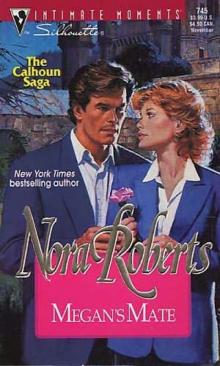 Megan's Mate tcw-5
Megan's Mate tcw-5 Loving Jack jh-1
Loving Jack jh-1 Rebellion & In From The Cold
Rebellion & In From The Cold Blue Dahlia gt-1
Blue Dahlia gt-1 The MacGregor Grooms
The MacGregor Grooms The Next Always tibt-1
The Next Always tibt-1 The Heart Of Devin Mackade tmb-3
The Heart Of Devin Mackade tmb-3 The Novels of Nora Roberts Volume 1
The Novels of Nora Roberts Volume 1 Treasures Lost, Treasures Found
Treasures Lost, Treasures Found Nora Roberts's Circle Trilogy
Nora Roberts's Circle Trilogy The Key Trilogy
The Key Trilogy The Fall Of Shane Mackade tmb-4
The Fall Of Shane Mackade tmb-4 A Will And A Way
A Will And A Way Jewels of the Sun goa-1
Jewels of the Sun goa-1 Luring a Lady
Luring a Lady